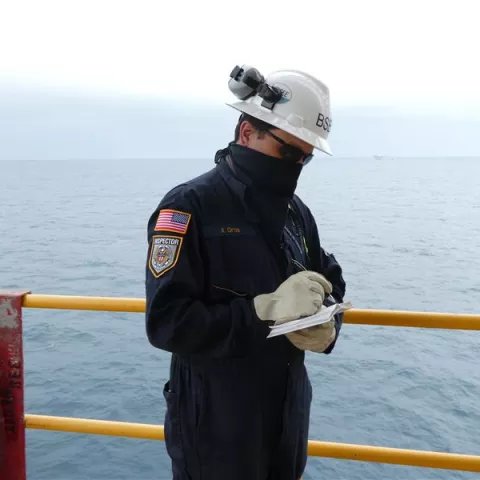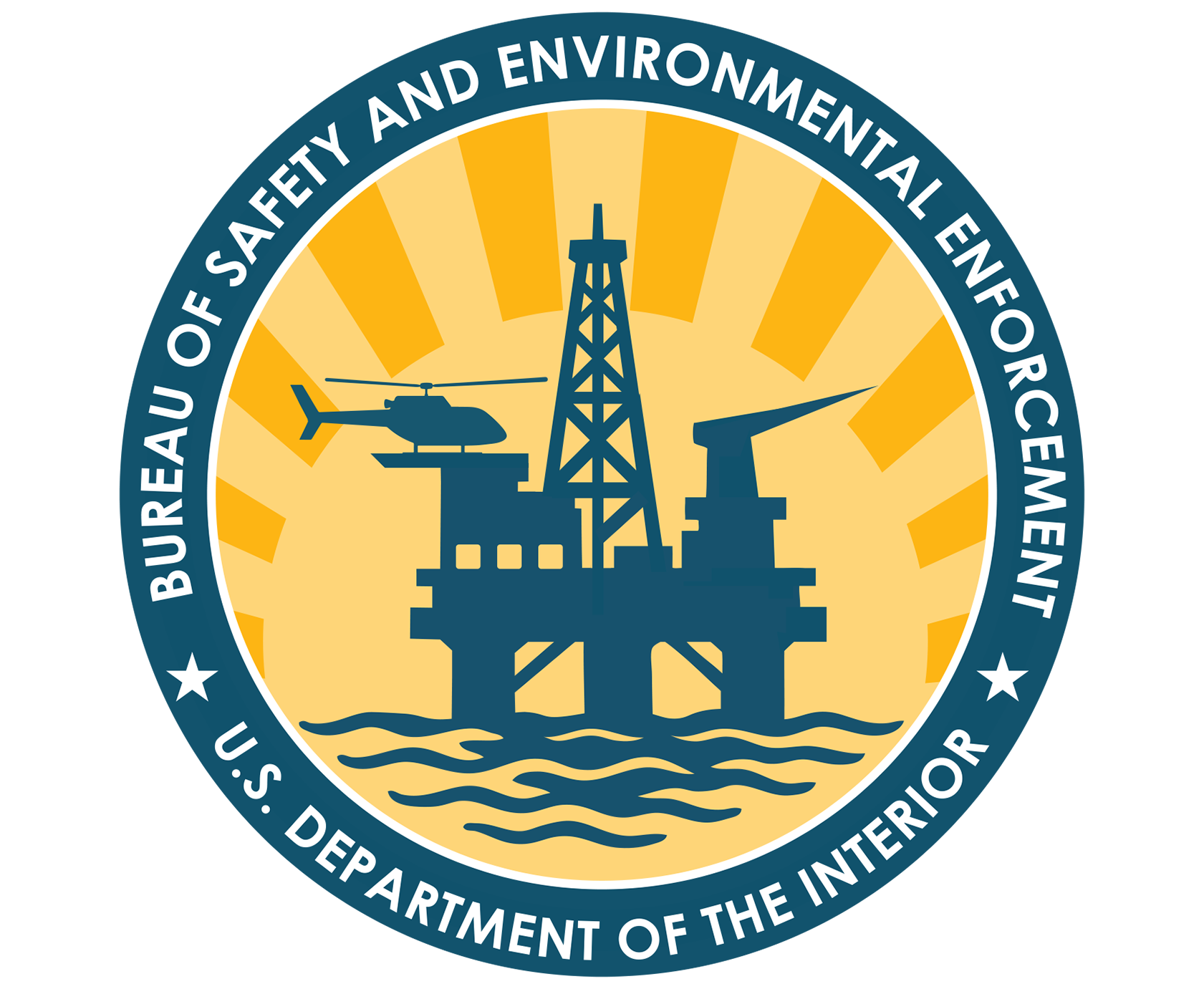
You are viewing ARCHIVED content published online before Jan. 20, 2025. Please note that this content is NOT UPDATED,
and links may not work. Additionally, any previously issued diversity, equity, inclusion or gender-related guidance on
this webpage should be considered rescinded. For current information, visit
News Items | Bureau of Safety and Environmental Enforcement.
WASHINGTON– When President Trump declared a national emergency March 13, 2020, Secretary of the Interior David Bernhardt dispatched Bureau of Safety and Environmental Enforcement (BSEE) Director Scott Angelle to the Bureau’s Gulf of Mexico Region.
Arriving in the region two days later, Angelle immediately began leading the effort to establish COVID-19-related protocols to ensure offshore oil and natural gas operations remained safe and environmentally sustainable. Following the drafting of the protocols, Angelle was among the first BSEE employees to travel offshore where he visited a production platform and a drilling rig in the Gulf of Mexico to confirm industry’s mitigation practices regarding efforts to reduce exposure risk for inspectors.
“BSEE inspectors are on the front lines of our mission,” said Angelle. “President Trump and Secretary Bernhardt’s primary focus was to ensure industry protocols and BSEE protocols would adequately protect them and still enable safe and environmentally sustainable operations during the COVID-19 national emergency. It was never an “either/or” question. We knew America was counting on us to both maintain production for national and economic security and to keep our employees safe. The Department’s Inspector General agrees we have done exactly that.”
The Office of Inspector General Cares Act Flash Report, issued September 21, 2020 confirmed that, “BSEE 1) developed, communicated, and updated COVID-19 guidance for all personnel involved with offshore inspections, 2) continued to complete its required inspections and 3) adapted its practices and remotely witnessed operators’ blowout preventer tests by accessing the operators’ software systems.”
BSEE inspections of offshore operations are mission essential functions as they allow for the continued production of oil and natural gas, vital for the country’s energy, economic, and national security. From March 15 through Sept. 14, 2020, BSEE Gulf of Mexico Region inspectors flew 257,080 miles over the course of 1,856 missions. They conducted 1,441 onsite physical inspections on a total of 1,112 Gulf of Mexico facilities, and 1,259 virtual, electronic record inspections onshore. During this same time period, no BSEE employee traveling to the Outer Continental Shelf was infected with COVID-19. While Angelle stated his confidence in the established protocols to help deliver safe results, he credited the discipline of the BSEE inspectors to accomplish a record of nearly 1500 offshore inspections on over 1100 facilities with zero (0) infections.
BSEE staff used Centers for Disease Control and Prevention guidelines to develop health screening protocols, provide personal protective equipment to inspectors and align mitigation measures with the offshore industry to provide maximum protection for all workers.
In addition to Centers for Disease Control and Prevention (CDC) guidance, BSEE consulted with the Department of the Interior’s medical staff to ensure any mitigation measure BSEE undertook aligned with the most current medical guidance. As the CDC’s recommendations evolved, BSEE, likewise, refined its mitigation practices and communicated to inspectors through a series of seven instructional memorandums.
“From the beginning of the pandemic, we’ve been in close communication with BSEE, sharing mutual insights about barriers to deploy as we look for ways to mitigate the spread of COVID-19 at our assets,” said Rick Tallant, Shell Energy Resources Company Vice President, Gulf of Mexico. “I commend BSEE for instituting protocols that protect inspectors and the offshore workforce.”
BSEE’s proactive approach to ongoing operations, particularly inspections, during the pandemic was systematic, thorough and effective in mitigating the risk to employees and offshore workers. Extensive communication and coordination with operators was key.
"BSEE leadership's early dialogue with Offshore Operators Committee led to the development of the Industry’s COVID-19 Mitigations document for offshore energy operations which was published on March 14,” said Evan Zimmerman, Offshore Operators Committee Executive Director. “This first-of-its-kind document established an effective means of communication, including development of a facility coding system, which enabled timely volunteer reporting of facility status as well as the sharing of mitigation information between the industry and the Agency as learning rapidly evolved in the early months of the pandemic.”
“We were very impressed with how swiftly BSEE adapted its own protocols in reaction to the unprecedented operational and logistical challenges posed by COVID-19,” said Pierre Bang, President and CEO, Total E&P USA, Inc.
I want to thank our BSEE teammates for their diligence in maintaining both production and worker safety, notwithstanding the challenges of COVID-19,” said Angelle. “We value the oversight of the office of Inspector General and will continue to assess and communicate guidance to our staff to ensure we remain diligent and dedicated to implementing mission, especially during these difficult times.”
The Bureau of Safety and Environmental Enforcement (BSEE) is the lead federal agency charged with improving safety and ensuring environmental protection related to the offshore energy industry, primarily oil and natural gas, on the U.S. Outer Continental Shelf (OCS). Under President Trump, BSEE is conducting more inspections, increasing the number of safety initiatives and ensuring more offshore oil and gas workers receive critical safety information.
-BSEE-
